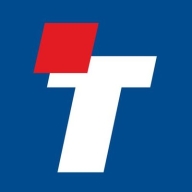

Teradata and Tibero compete in database management solutions. Teradata holds an advantage with its advanced analytics capabilities appealing to large enterprises, while Tibero is noted for cost-effectiveness and Oracle compatibility.
Features: Teradata offers powerful scalability, complex query support, and comprehensive data warehousing and analytics features. Tibero provides strong compatibility with Oracle databases, simplicity of operation, and cost-efficiency in Oracle-like environments.
Room for Improvement: Teradata could improve in areas such as simplifying its interface for less technical users, reducing initial setup complexities, and enhancing cost transparency. Tibero might enhance its analytics performance, expand its third-party integration capabilities, and improve its scalability for larger workloads.
Ease of Deployment and Customer Service: Teradata provides extensive deployment options and robust customer service that caters to large organizations demanding comprehensive support. Tibero offers a straightforward deployment model, which appeals to businesses favoring quick setup and familiar interfaces due to its Oracle compatibility.
Pricing and ROI: Teradata typically incurs higher upfront costs due to its advanced features and scalability, yet offers justified ROI for enterprises needing extensive data capabilities. Tibero presents an economical alternative, allowing for lower initial costs and competitive ROI by minimizing efforts in Oracle environment migration.
| Product | Market Share (%) |
|---|---|
| Teradata | 4.0% |
| Tibero | 2.1% |
| Other | 93.9% |

| Company Size | Count |
|---|---|
| Small Business | 28 |
| Midsize Enterprise | 13 |
| Large Enterprise | 52 |
Teradata is a powerful tool for handling substantial data volumes with its parallel processing architecture, supporting both cloud and on-premise environments efficiently. It offers impressive capabilities for fast query processing, data integration, and real-time reporting, making it suitable for diverse industrial applications.
Known for its robust parallel processing capabilities, Teradata effectively manages large datasets and provides adaptable deployment across cloud and on-premise setups. It enhances performance and scalability with features like advanced query tuning, workload management, and strong security. Users appreciate its ease of use and automation features which support real-time data reporting. The optimizer and intelligent partitioning help improve query speed and efficiency, while multi-temperature data management optimizes data handling.
What are the key features of Teradata?
What benefits and ROI do users look for?
In the finance, retail, and government sectors, Teradata is employed for data warehousing, business intelligence, and analytical processing. It handles vast datasets for activities like customer behavior modeling and enterprise data integration. Supporting efficient reporting and analytics, Teradata enhances data storage and processing, whether deployed on-premise or on cloud platforms.
Tibero by TmaxSoft bridges the gap between legacy relational databases and the new paradigm of running workloads in virtualized data centers and the Cloud, allowing enterprises to fully leverage their investment by embracing a simple, true utilization licensing model.
We monitor all Relational Databases Tools reviews to prevent fraudulent reviews and keep review quality high. We do not post reviews by company employees or direct competitors. We validate each review for authenticity via cross-reference with LinkedIn, and personal follow-up with the reviewer when necessary.